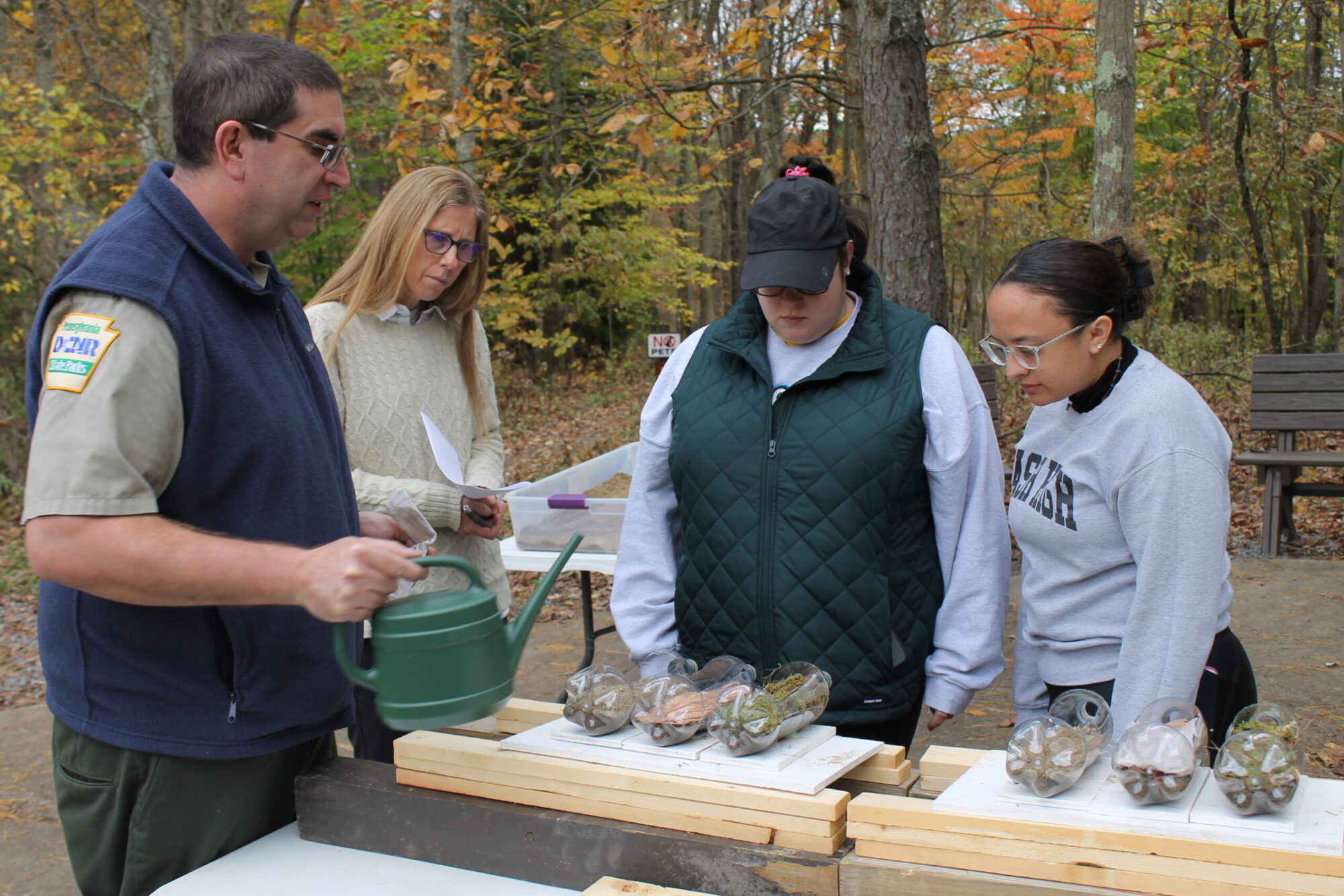Sometimes, the best learning for students – and teachers – happens outside of a traditional classroom. More than a dozen science teachers from school districts served by the Beaver Valley Intermediate Unit (along with other schools) were on hand Thursday for a Meaningful Watershed Educational Experience (MWEE) workshop, organized in part by BVIU, at the Wildflower Reserve Interpretive Center at Raccoon Lake State Park.
The day served to provide teachers with a framework to develop similar experiences for their students. During the day, teachers investigated topics such as water quality at various stations, similar to how students would conduct experiments. Teachers even got outside and walked the park’s trails to investigate the environment.
“It’s a framework teachers can use to develop these experiences for kids and have them engaging with science in a very real-world way,” said Miranda Crostley, the program coordinator at Jennings Environment Education. “Today, we’re starting with some curiosity about some of the things that live in the stream, and we’ve kind of brought those indoors for the first part of the lesson today. Then (the teachers are) going to develop questions about what they wonder about the quality of the water and what might be affecting it. And then we’re going to actually conduct those investigations.”
She added, “It’s about how to conduct these kinds of investigations with students — not necessarily just the content of what they’re learning about macro invertebrates, for example — but about how to engage students so that these lessons are more student-driven.” The lessons also help satisfy the environmental literacy and sustainability aspects of Pennsylvania’s new STEELS standards. Instituted in 2022, Pennsylvania’s Science, Technology & Engineering, Environmental Literacy & Sustainability Standards prioritize participation in scientific discourse, as opposed to – primarly – memorizing facts.
Nate Whatley, a first-year science teacher at Chartiers-Houston, found the lessons beneficial and plans to incorporate what he learned into future plans for his students. “Getting hands-on learning, I feel like that’s the best way for students to be able to learn,” he said. “I encourage that in my classroom with labs. I try to keep it mainly in labs and have them explain it to me, because curiosity is what drives learning.” He added, “I’m excited to bring this back to my classroom.”
Crostley said she hopes the lessons learned Thursday will have an impact for students in the future. “These Meaningful Watershed Educational Experiences, we hope these teachers will carry them on with their students. These are things that hopefully will make the kids aware of environmental issues and motivate them to want to solve those issues and to just get out there and enjoy the natural world,” she said.


